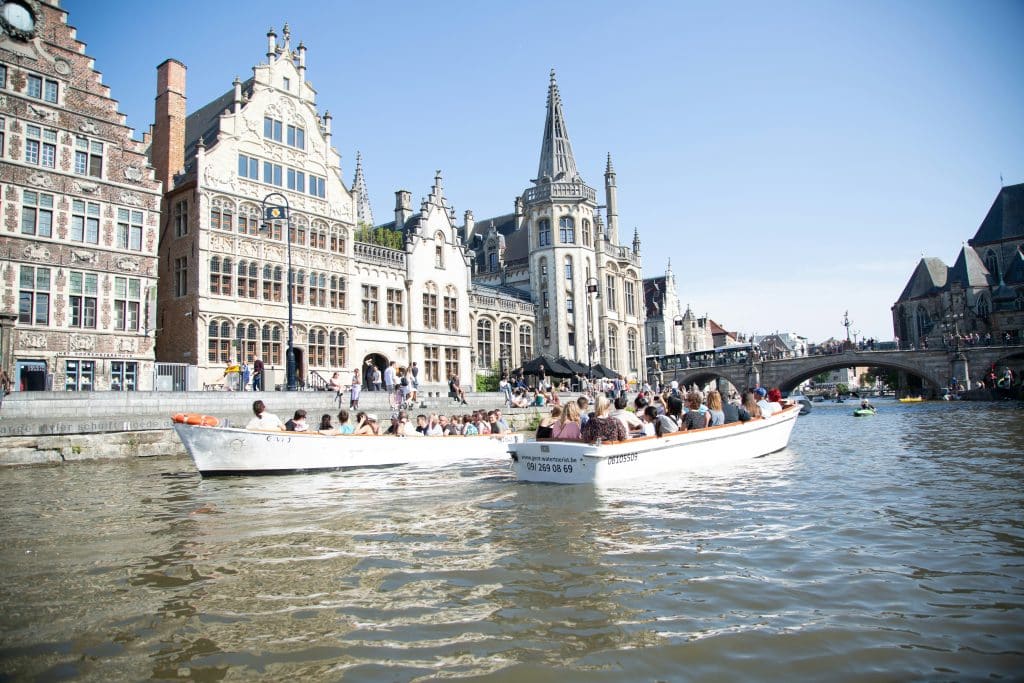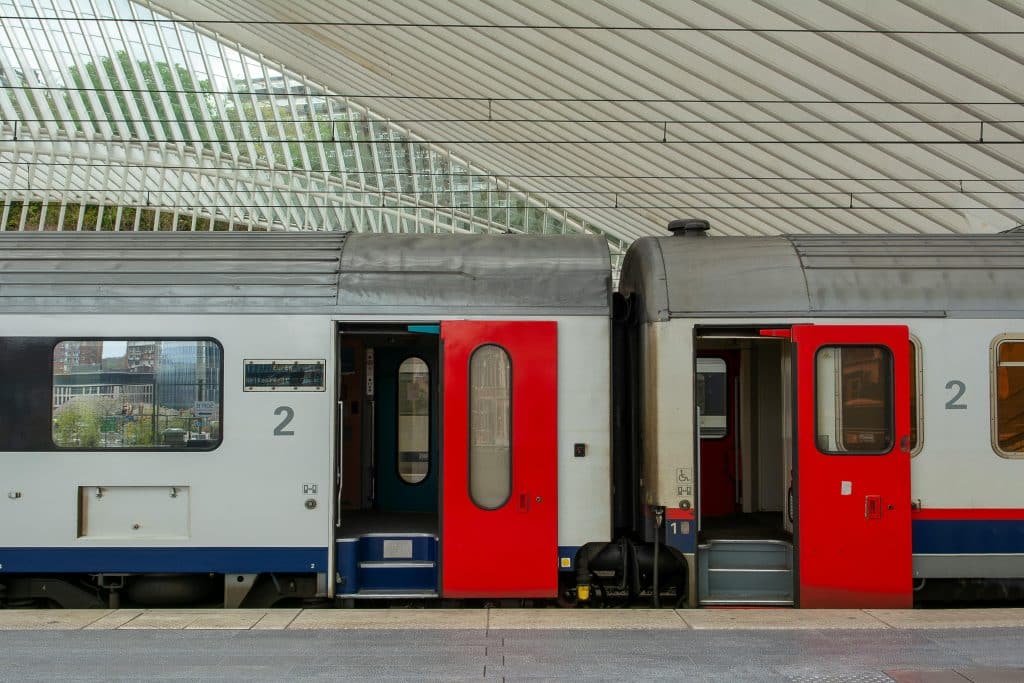Have you fallen in love with Belgium after a holiday or business trip? Perhaps a career opportunity has brought you here?
If you are looking for more information about the cost of living in Belgium, you are probably considering moving there in the near future.
Whether you are planning to move there alone or with your family, Foyer Global Health tells you everything you need to know about:
- The average cost of living in Belgium
- Rent prices
- The monthly grocery budget
- Healthcare costs
- School fees
- The average leisure budget (after all, you need to relax from time to time!)
You will also find several comparisons of the cost of living in other countries (France, Switzerland, Luxembourg, Canada, England, etc.). Let’s get started!
Overview of the average cost of living in Belgium
As a reminder, the official currency in Belgium is the Euro (€).
The cost of living for a single person in Belgium is 1,750 €, including rent. A family of four should budget for 4,550 € per month.
| Expense | Average price in Belgium |
|---|---|
| Average monthly net salary | 2,500 € |
| Rental price for an apartment | 850 – 1,330 € |
| Purchase price of an apartment per square metre | 2,900 – 3,700 € |
| Petrol (1 L) | 1.65 € |
| Mobile phone plan (calls + 10 GB of data) | 20.40 € |
| Bottle of local beer (500 ml) | 4.50 € |
| Cinema ticket | 13 € |
Accommodation in Belgium
Rent is the second largest expense in Belgium, just behind groceries. However, it is important to note that housing prices vary from city to city, with the rental market in Brussels being saturated, which has led to a surge in prices. Rents in Liège and Antwerp, for example, are lower than in the capital.

Here are the average prices to expect for housing in the main Belgian cities in 2025:
| Type | Brussels | Liège | Antwerp | Bruges | Ghent |
|---|---|---|---|---|---|
| One bedroom apartment in the city centre | 1,100 € | 720 € | 900 € | 670 € | 890 € |
| One-bedroom apartment outside the city centre | 930 € | 580 € | 750 € | 620 € | 790 € |
| Purchase price per square metre | 4,000 – 4,650 € | 1,850 – 2,800 € | 1,100 to 1,400 € | 2,000 – 2,690 € | 3,000 – 4,500 € |
| Monthly bills (electricity, heating, air conditioning, etc.) | 220 € | 198 € | 180 € | 196 € | 200 € |
Food budget
Groceries are the biggest expense in life in Belgium. To give you an idea, here is a table of prices for some basic food items in Belgium:
| Food item | Average price in Belgium |
|---|---|
| Milk (1 L) | 1,15 € |
| Water (1,5 L) | 0,90 € |
| Bread (500g) | 2,20 € |
| 12 eggs | 3,50 € |
| Local cheese (1 kg) | 13,20 € |
| Chicken fillets (1 kg) | 10,40 € |
| Red meat (1 kg) | 16 € |
| Apples (1 kg) | 2,50 € |
| Bananas (1kg) | 2 € |
| Tomatoes (1 kg) | 2,60 € |
| Potatoes (1kg) | 2 € |
| Onions (1kg) | 1,60 € |
| Local beer (500 ml) | 4,50 € |
| Imported beer (330 ml) | 5 € |
Transport and communication
Belgium has an extensive public transport network that serves both city districts and the various regions and provinces of Belgium.
Train: the SNCB (Belgian National Railway Company) serves most of the country with IC (intercity) and IR (interregional) lines. The price of a standard ticket varies between €2.50 and €26 depending on the distance travelled.
To get around Brussels and the surrounding area, you can opt for the Brupass, which gives you access to all transport in the capital (bus, tram, metro, etc.) for €66 per month.

Metro: Brussels, Charleroi and Antwerp have a metro system. A single ticket costs an average of €2.40 and a book of ten tickets costs €16.80.
Bus: where there are no train lines, Belgian buses take over. This transport is regionalised: the Flemish region is served by the De Lijn company and Wallonia by the TEC. A single De Lijn ticket costs €3, while the starting price for a TEC ticket is €2.20.
Car: Drivers can fill up their cars with petrol at 1.65 EUR per litre, which is currently similar to the price in the France (indexed to 19 May 2025). It should be noted that Belgian motorways are completely free of charge.
The following are the monthly costs for telecommunications services:
- Price of a mobile phone plan with calls and 10 GB of data: between €12 and €35.
- Price of a 60 Mbps internet subscription with unlimited data: between €35 and €70.
Medical expenses in Belgium
On 15 February 2025, the INAMI (National Institute for Health and Disability Insurance) updated the rates for basic medical services covered by compulsory insurance in Belgium. Here are the current prices for consultations:
| Medical services | Average fees | Current average actual price (2025) |
|---|---|---|
| Consultation with a general practitioner | 26.50 € | 20.50 – 25 € |
| Consultation with a specialist | 32 € | 21 – 30 € |
| Consultation with a cardiologist | 40 € | 28 – 37 € |
| Consultation with a gastroenterologist | 49 € | 37 – 46 € |
| Consultation with a paediatrician | 45 € | 32 – 42 € |
| Consultation with a neurologist | 66 € | 54 – 63 € |
The Belgian healthcare system is renowned for its quality and reliability. It is based on compulsory health insurance, with modern medical facilities throughout the country. However, waiting times can sometimes be long, and some costs are not covered by the national health service.
To benefit from more comprehensive cover, many expatriates choose to take out international private health insurance.
This type of cover provides them and their families with a number of advantages:
- Full coverage, valid in Belgium, in their country of origin and internationally
- Rapid access to comprehensive medical care at the facility of their choice
- Additional services, such as those offered by Foyer Global Health: teleconsultation for a second medical opinion, fitness programme, mental health coaching, etc.
Education in Belgium
Public schools are free throughout Belgium. Private schools subsidised by the provinces and municipalities cost an average of 650 EUR per school year. For non-subsidised private schools, here are the average costs for sending your children to school:
- Nursery school: 570 EUR/month
- International primary school: 13,600 EUR/year
- From 6th year of primary school, 1st, 2nd and 3rd year of secondary school (equivalent to s-econdary school): from €5,000 to €23,000 per year, depending on the school
- From 4th, 5th and 6th year of secondary school (equivalent to sixth form): from €5,000 to €23,000 per year

For students from the European Union who wish to pursue higher education in Belgium, registration fees and tuition for one academic year amount to a maximum of €835 per year.
Non-EU students should budget an average of €5,010 per year.
Leisure and activity budget in Belgium
It’s impossible to get bored in Belgium, as there is such a wide range of activities and leisure pursuits on offer. From evenings out in lively neighbourhoods to cultural outings with the family, there is something for everyone… and for every budget!
- Evening at the cinema: €13 per ticket.
- Monthly gym membership: €33 on average.
- Meal for two in a mid-range restaurant: €80.
- Two cappuccinos in a café: €7.
- Visit to the Comic Strip Museum in Brussels: €14 per adult, free for children under 6.
- No fewer than 179 museums and attractions are accessible free of charge in Belgium.
- Visit to the Atomium: €14 per adult, €8.50 per child.
- Day at Pairi Daiza animal park: from €41 per adult.
Cost of living in Belgium vs other countries
Compared to France
The cost of living in France and Belgium is almost the same. The difference is minimal, with Belgium being on average 1.5% cheaper than France, including rent.
However, the budget can vary depending on the city you live in. For example, living in Paris is about 15% more expensive than living in Brussels. This difference is mainly due to the cost of housing:
- Studio in central Paris: €1,400 per month.
- Studio in central Brussels: €1,100 per month.
Compared to Switzerland
Switzerland is considered the most expensive country in Europe. It is therefore not surprising that the cost of living in Switzerland is 80% higher than in Belgium.
While a person needs around €1,750 per month to live in Belgium, this budget rises to €3,180 in Switzerland.
However, the average salary in Switzerland is also much higher than in Belgium: expect to earn an average of €6,350 net per month compared to €2,500 net per month in Belgium.
Compared to Luxembourg
The cost of living in Luxembourg is 37% higher than in Belgium, including rent. All items of expenditure are higher:
- Rent: +110%
- Groceries: +21%
- Restaurants: +7%
However, as in Switzerland, the average salary in Luxembourg is higher, at €5,800 net per month.
As a result, the purchasing power of Luxembourg residents is more than 60% higher than in Belgium.
Compared to Canada
Living in Canada costs around 7% more than living in Belgium.
A single person needs a monthly budget of €1,900 in Canada, compared to €1,750 in Belgium. For a family of four, you should allow around €5,100 per month, compared to €4,550 in Belgium.
However, this budget varies depending on the province. For example, living in Montreal (Quebec) costs on average 19% less than living in Vancouver (British Columbia). For more information, see our guide to the cost of living in Canada.
Compared to the UK
The UK is about 10% more expensive than Belgium when considering the overall cost of living including rent.
A single person in the UK needs approximately €1,920/month to maintain the same standard of living as someone spending €1,750/month in Belgium. A family of four typically needs around €5,100/month in the UK, compared to €4,550/month in Belgium.
Living in London skews the average considerably. Living in smaller cities like Manchester, Birmingham, or Glasgow can be up to 20–30% cheaper than London.
